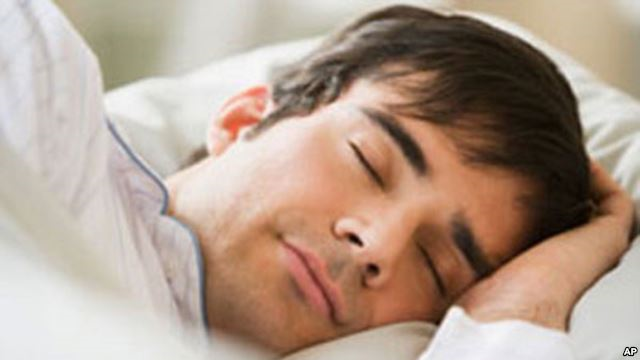
[전문 & mp3] / [받아쓰기]
Humans need less sleep than other mammals, yet their slumber is more efficient, said researchers at Duke University in North Carolina. In their study, the scientists researched sleep patterns of hundreds of animals. They discovered humans sleep for shorter periods of time compared to other animals. The study also concluded that a human’s sleep is higher quality. A deeper stage of sleep, called rapid eye movement sleep, or REM, makes up 25 percent of a human’s sleep. In primates like lemurs or monkeys, REM sleep does not reach the five percent mark.
* mammal = 포유동물/ slumber = 잠, 수면/ efficient = 능률적인; 효율적인/ sleep pattern = 수면양상(睡眠樣相)/ compared to ~ = ~와 비교하여/ conclude = 결론[판단]을 내리다/ REM(= rapid eye movement) = (수면 중의) 급속 안구 운동/ make up = ~을 이루다[형성하다]/ primate = 영장류 (동물)/ lemur = 여우원숭이
“Humans are unique in having shorter, higher quality sleep,” said David Samson, a study co-author. Samson’s research team found that humans can prosper with an average of seven hours of sleep a day. Other primates need as many as 14 to 17 hours of sleep. Samson said human sleep habits evolved during prehistoric times. Human ancestors moved from sleeping in trees to sleeping on the ground. Better sleeping habits resulted in better sleep in a shorter amount of time.
* unique in ~ = ~의 점에서 유일한/ prosper = 번영[번창/번성]하다/ evolve = 발달[진전]하다; 진화하다/ prehistoric times = 선사 시대/ ancestor = 조상, 선조/ result in ~ = (결과적으로) ~을 낳다[야기하다]












